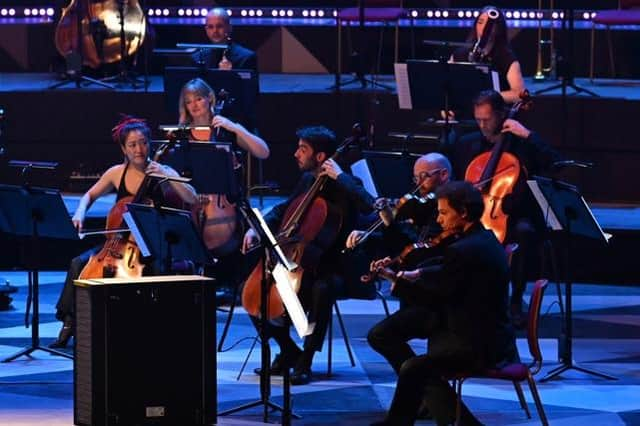Music review: SCO & Thomas Zehetmair, Queen’s Hall, Edinburgh


SCO & Thomas Zehetmair, Queen’s Hall, Edinburgh ****
One of these days, we might get to hear the new double bass concerto Aurora by Hungarian composer Péter Eötvös. Originally scheduled for the SCO’s concert on 19 March 2020, it became one of the first casualties of lockdown – and was then bumped again from the orchestra’s concerts this week.
What we got in its place, however, was an alternative “new” work, devised by the concert’s conductor and solo violinist Thomas Zehetmair. He’d taken an unfinished String Trio fragment – barely 100 bars – by Mozart, and fashioned a substantial work for string orchestra from it, beginning with the intimate interplay from three SCO string principals before blooming across the full SCO string section, and taking a few modern liberties with harmonic sidesteps along the way. It was a fascinating, old-meets-new concoction, gently provocative but always respectful, and the vivid, strongly projected account that Zehetmair goaded from the SCO players summed up his approach across the rest of the programme.
Advertisement
Hide AdAdvertisement
Hide AdHe’d begun with a crisp, buoyant Bach A minor Violin Concerto, in which the liberties in rhythm and inflection that he took as soloist (not to mention his abundant vibrato) contrasted fascinatingly with the clean, clear, precise playing from the orchestra. He took a similar high-contrast, urgent perspective on the Mendelssohn Die schöne Melusine Overture that followed, with Maximiliano Martín’s bubbling clarinet lines vividly conjuring its eponymous water-nymph, and Zehetmair’s high-energy, high-impact approach really came into its own in the concert’s closer, Haydn’s “Oxford” Symphony, from a shapely, stylish slow movement (with supple, sculpted contributions from principal flautist André Cebrián), to a boisterious minuet and trio that would have made its dancers break a sweat.
Maybe there wasn’t the contrast that a new double bass concerto would have provided, but it was a deeply satisfying evening of impeccable music making nonetheless.
A message from the Editor:
Thank you for reading this article. We're more reliant on your support than ever as the shift in consumer habits brought about by coronavirus impacts our advertisers.
If you haven't already, please consider supporting our trusted, fact-checked journalism by taking out a digital subscription at https://www.scotsman.com/subscriptions